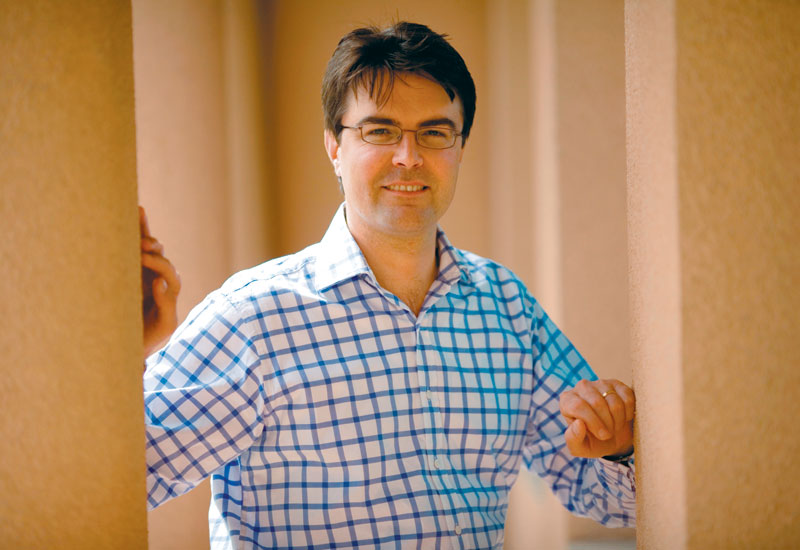“India really exceeded expectations in 2009 and through in to 2010, with large groups as well as FITs, and we see huge potential in high end leisure and MICE, while for the future, we will be looking at China, Japan and new European markets as Emirates expands its network.”
Generally, the reports from European operators at the trade show ITB indicated that Dubai, while not flavour of the month, was back in the frame and viewed as a more complete destination, a view endorsed by Guy Epsom, Mövenpick business development director charged with launching two new resorts on The Palm Jumeirah as well as Ibn Battuta Gate and Deira hotels.
“The interest in Dubai is there,” he says. “But what is happening is that operators tend to be consolidating brochures, reviewing hotel features and focusing more on USPs.”
For Mövenpick’s Royal Amwaj, what will be its USP is packaged pricing, with half board or fully-inclusive, a move already taken up by Jebel Ali Golf Resort & Spa and indicative of the imperative to stand out from the crowd.
“Reaction has been phenomenal and it is possible that this will set a trend as hoteliers sit back and watch the effects — being new to the market it is easier for us to implement,” says Epsom.
“Another thing that will make a difference in the market is the price comparison websites in Europe, which means we will have to be more creative in our approach.”
With hotels at the Ibn Battuta mall as well as in downtown Deira, Epsom said every property had to make its mark, from creating an Arabic themed destination at Ibn Battuta Gate through to targeting stopover and budget travellers in Deira: “We will have to chase markets but there is room for everyone with new routes to Europe and Japan, for instance, more interest from India and potential for China and South America.”
Certainly at the very top end of the market, Al Maha Desert Resort and Spa saw steady demand, the return of small groups, and revPAR down between 10% and 16% following a tactical campaign to promote add-ons rather than drop rates, according to Tony Williams, SVP, Emirates Hotels & Resorts.
“We did ‘four for three’, spa specials and included transfers, but held our rates — we are fortunate that as a stand-alone resort, we don’t have rate parity issues and could stick with one plan over 12 months,” he says.
“Feedback from ITB was that Dubai hotels were still having a kneejerk reaction to the situation which was not helpful with rates flooding in to the market and changing daily.”

Advertisement
New names
For those coming in to the Dubai market last year, it was perhaps the best of times as well as the worst of times, according to a phlegmatic Daniel Hajjar, CEO of Layia Hospitality, which had a roll-out plan for a network of three-, four- and five-star hotels and residences.
“We still have 11 signed management agreements, of which four to five will go ahead but the rest will be on the back burner,” he reveals.
For 2009, launching with a new company and a new hotel where access was through a construction site in Tecom, Hajjar said it was ‘challenging’ but they survived by managing costs and going back to basics to source market share in the GCC market — which now perceives Dubai as more affordable with competitive hotel rates and low-cost air travel.
“The days of revenue first and costs second have gone,” he says. “However, looking ahead for 2010 we are going to be up on last year and already for Q1, we ended up around 84% occupancy.”
This is good news for another new entrant, Citymax Hotels by the Landmark Group, which has two three-star properties with nearly 1000 rooms in total opening in Al Barsha and Bur Dubai this year, and, according to general manager, Michael Weyland, will focus on transparent pricing and location as USPs of its properties.
“We have always looked at entering the market at a price point below AED 300 ($82) a night and this has not changed,” he says. “We have marginally adjusted our occupancy expectation but it is still above 70%.
“There is definitely potential for more mid market brands, especially in the economic environment we are in when business travellers are trading down and are willing to accept a more ‘no frills’ hotel experience,” says Weyland.
At the top end, another new name opening this spring with 23 floors of premium hotel apartments is Fraser Suites, located on Sheikh Zayed Road and targeting global corporates in the first instance, says general manager David Brown.
“We have 32 properties worldwide and number 80% of the Fortune 500 companies among our clientele so we will be looking at leveraging these contacts,” he explains.









 Search our database of more than 2,700 industry companies
Search our database of more than 2,700 industry companies









